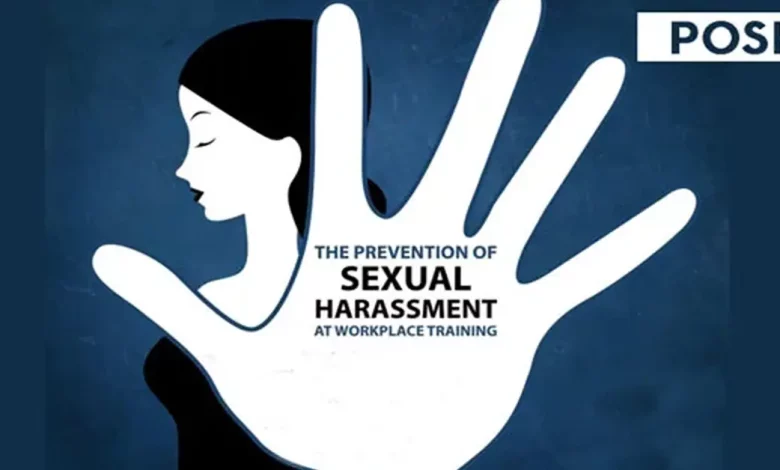Daily Current Affairs for UPSC
PoSH Act, 2013
Syllabus- Government policies & interventions [GS Paper-2]

Context- The Sexual Harassment of Women at Workplace (Prevention, Prohibition and Redressal) Act, 2013 (PoSH) has completed 10 years of implementation.
Key Features of the PoSH Act
- Clear Definition of Sexual Harassment: The law defines sexual harassment as unwanted activities such as physical contact and sexual advances, demanding or requesting sexual favors, sexually colored remarks, pornography, and the display of other unwanted physical, verbal or unwanted material. sexual verbal behavior.
- Scope: The Act applies to all workplaces, including organized and unorganized sectors, public and private sectors, and governmental and non-governmental organizations.
- Employee: All female employees, regardless of whether they are regular, temporary, contract, temporary or day-wage, apprentice or trainee, or even working without the knowledge of the main employer, can claim compensation for sexual harassment in the workplace.
- Establishment of an Internal Complaints Committee (ICC): Employers must establish an ICC in each office or branch employing 10 or more employees. It must be managed by a woman, have at least two female employees, one employee and a third person, for example an NGO employee with five years of experience.
- Local Committee (LC): It obliges every district in the country to form a Local Committee (LC) to receive complaints from women working in businesses with less than 10 employees.
- Procedure for filing a complaint: A woman can file a written complaint within 3-6 months of sexual harassment.
- The Commission can resolve the matter in two ways: through mediation between the complainant and the respondent (which cannot be a monetary settlement), or the Commissions can initiate an investigation and take appropriate action based on the findings.
- Annual audit report: The employer must submit an annual report to the district officer on the number of sexual harassment complaints made and the actions taken at the end of the year.
- Penalty: If an employer fails to constitute ICC or comply with other provisions, the employer will have to pay a fine of up to ₹ 50,000, which will be increased in case of repeated offences.
Significance of the law
- Faster and more efficient resolution of cases
- Promoting a safe work environment.
- A legal framework that includes sanctions for non-compliance acts as a deterrent to sexual harassment in the workplace.
- Broad applicability ensures that protections against sexual harassment extend to different workplaces.
- The law emphasizes the importance of maintaining confidentiality during the investigative process, which encourages victims to come forward.
Challenges in implementing the PoSH Law
- Lack of awareness: Many people may not be fully aware of their rights and responsibilities under the law, leading to under-reporting of cases and inadequate prevention measures.
- Inadequate training: Lack of training can lead to improper handling of complaints, potential bias and failure to create a supportive and responsive environment.
- Non-compliance: Some employers may not fully comply with the requirements of the PoSH Act, such as establishing an ICC, implementing awareness programs and implementing preventive measures.
- Informal workplaces: Challenges in combating sexual harassment in informal or unorganized workplaces, where clear reporting structures, established practices and awareness of the legal framework may be lacking.
- Inadequate penalties: The law does not provide for strong penalties for non-compliance, which may reduce the deterrent effect.
- Cross-Border Challenges: International organizations may face challenges in implementing the POSH Act in different jurisdictions and with different legal frameworks.
Way Forward
- Stronger sanctions and enforcement mechanisms could help enforce the provisions of the Act.
- Adapting the PoSH Act to the challenges of change, such as virtual harassment and distributed work environments, is crucial.
- Regular information campaigns, extensive training programs and continuous evaluation and updating of the legal framework can contribute to the effective implementation of the PoSH Act.
Source: Indian Express
Practice question:
Q. What key aspects should be considered in the analysis of workplace investigations under the POSH Act?





.png)



